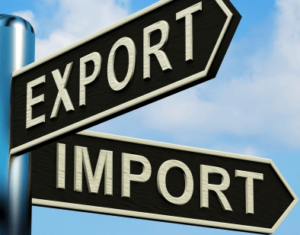Trade between Ghana and China reaches $6.6b in 2015
 Trade between Ghana and China rose to $6.6 billion in 2015, representing an 18.2 per cent year- on- year increase, ranking it the sixth amongst the African continent trading partners.
Trade between Ghana and China rose to $6.6 billion in 2015, representing an 18.2 per cent year- on- year increase, ranking it the sixth amongst the African continent trading partners.
In the same year, China made direct investments of $174 million to Ghana, with an over-all accumulated amount of $1.3 billion, ranking it fourth among African countries.
This was revealed in a brief on the recently held China-Ghana Economic and Trade cooperation Forum.
It said the amount of newly signed projects in 2015 reached $1.286 billion, ranking 14th among African countries, “and we also achieved $1.406 billion worth of business turn over the same year,” it added.
Currently, China is one of the main sources of foreign –direct investment in Ghana.
China has financed and carried out a number of projects that have boosted the socio-economic growth of Ghana.
Examples of these are the Sunon Asogli Power Plant, Africa World Airline and the Sentuo Steel factory, which had played the key roles of providing more job opportunities for local people, promoting the interconnection of the sub-region, and helping to resolve electricity power shortage.
Others are the Ghana E-Government Platform undertaken by Huawei Company, the Kpong Water Supply Expansion Project, which was built by the Gezhouba Group, the Atuabo Gas Processing Project undertaken by SINOPEC and the Northern electrification Project built by Hunan Construction Group.
It said these projects have played important roles in improving local people’s livelihood.
Ghanaian students have also developed great passion for studying the Chinese language and culture, which highly compliments the increased level of cooperation between the two countries.
According to the brief, the number of Ghanaian students studying in China, reached 3,000 last year, which it said, was the highest in Africa.
It said China also trained more than 820 officials and technical staff for Ghana last year.
During the Johannesburg Summit of the Forum on China-Africa Cooperation which was held last year, China mentioned agricultural modernisation, infrastructure, green development and poverty reduction as priority areas of China-Africa cooperation.
The Chinese Ambassador to Ghana, Madam Sun Baohung, said during the forum, China would uphold the guidelines on China’s relations with Africa featuring sincerity, results and good faith.
She said China would also encourage and support Chinese companies to invest in Ghana, and further lift China-Ghana economic and trade cooperation to a new level.
“China has just emerged as the world’s largest economy, and has gone from being “the world’s factory to one of the world’s largest consumer markets,” quotes the International Institute for the Advanced Study of Cultures, Institutions and Economic Enterprise.
“The institute 1ays following the spectacular economic growth over the last two decades, there had been a huge rise in the number of Chinese companies, with many seeking investment and other business opportunities outside China.
“There is thus a number of reasons, which form a solid basis for the newly emerging trend of strengthened relations between China and Ghana.
“With socio-economic cooperation being at the core of this new trend, and several benefits being reaped already within the country, it could be said that the new era of China-Africa/ China-Ghana relations, potentially offers not only mutually beneficial collaborations for both sides but also, a chance for Africa as a whole and Ghana, to also get innovative and make use of its rich sources, in order to have good supplies for “the world’s greatest consumer,” she said.
Madam Sun, advised that both Ghana and China should step up their efforts in strengthening exchanges on governance experience.
She said China’s experience in agricultural and regional development as well as practical technology had immensely improved.
“We are willing to share the experience with our Ghanaian friends without reservation,” she said.
Madam Sun, urged government to simplify procedures on customs and visas, and strengthen macro-policy coordination and technical standards cooperation, in order to create a favourable business environment.
Source: GNA
